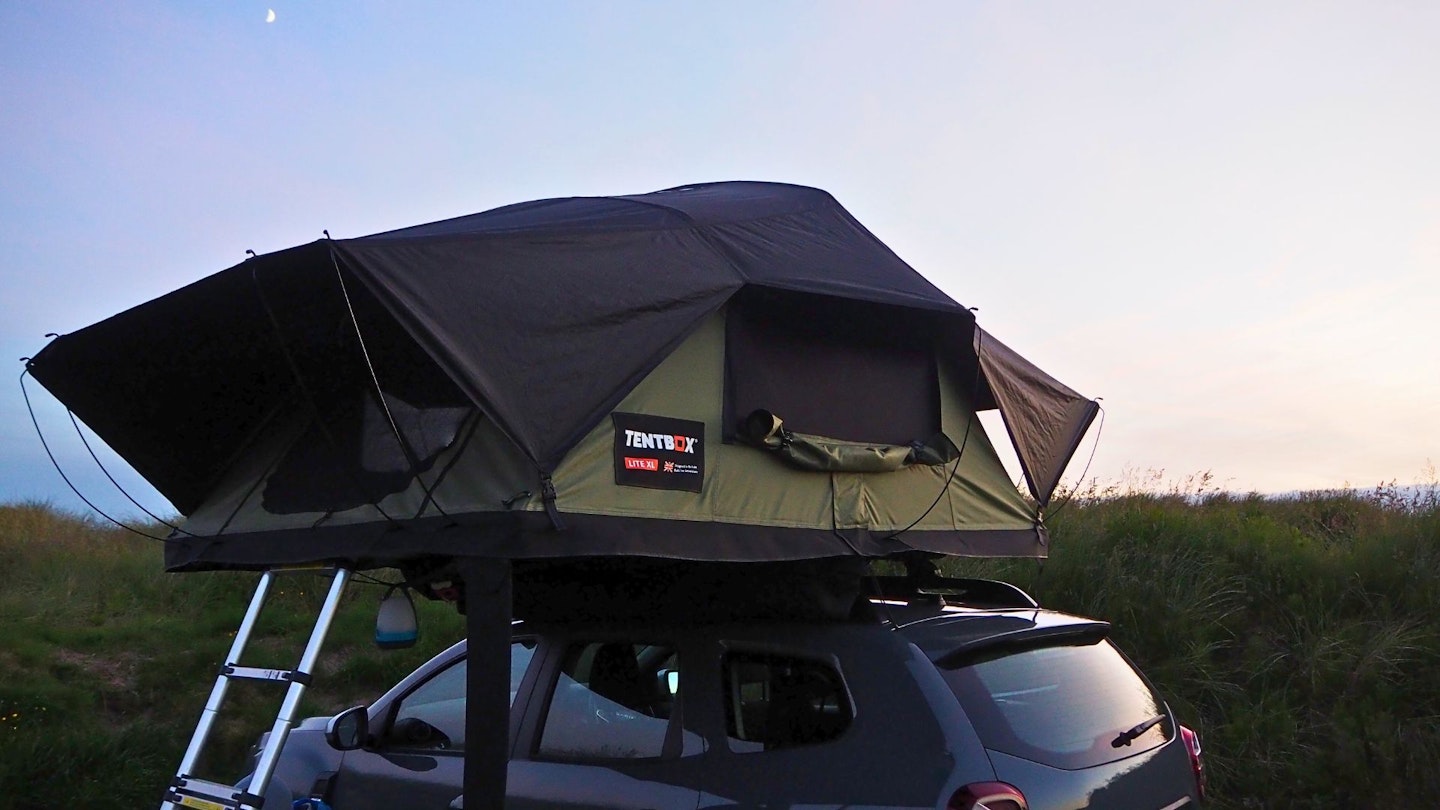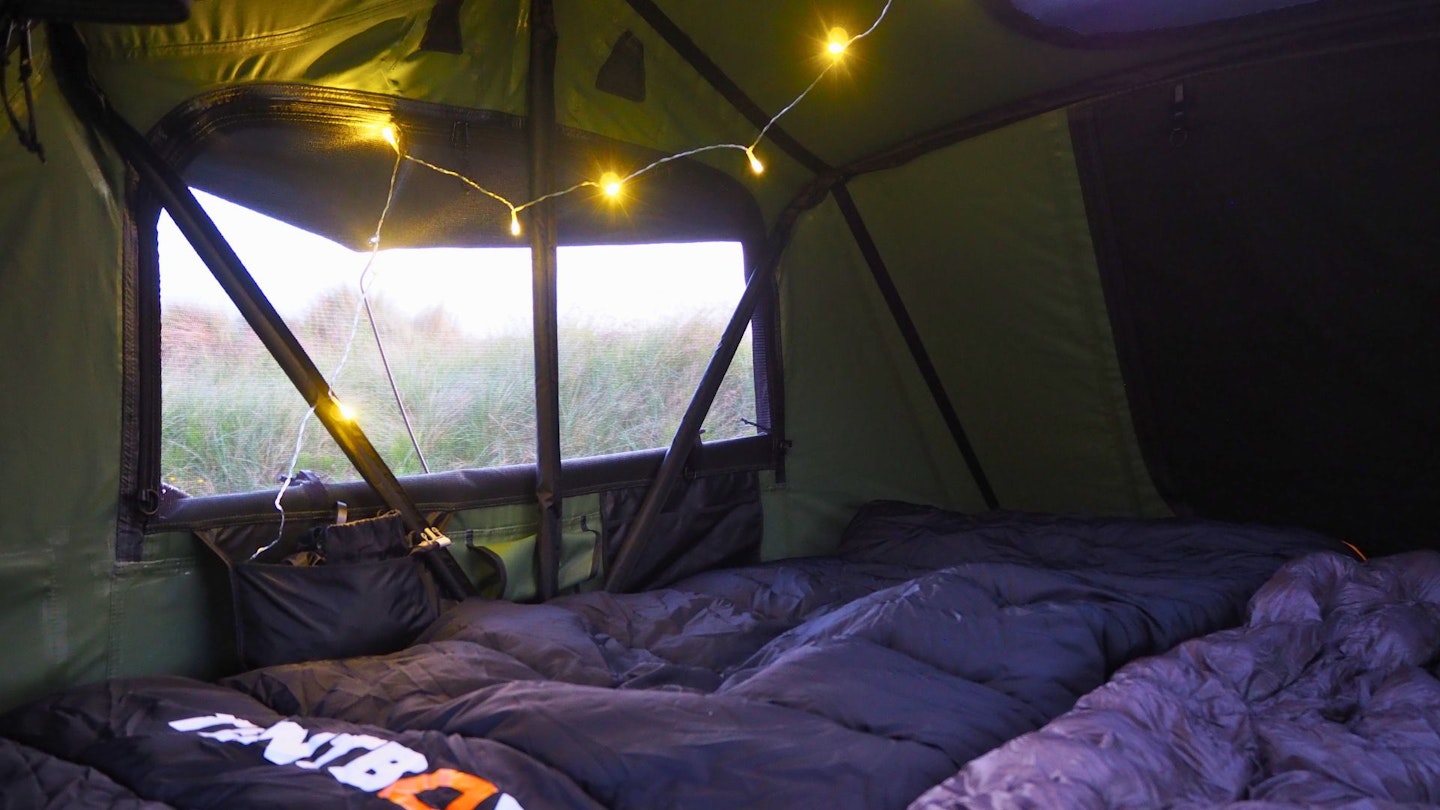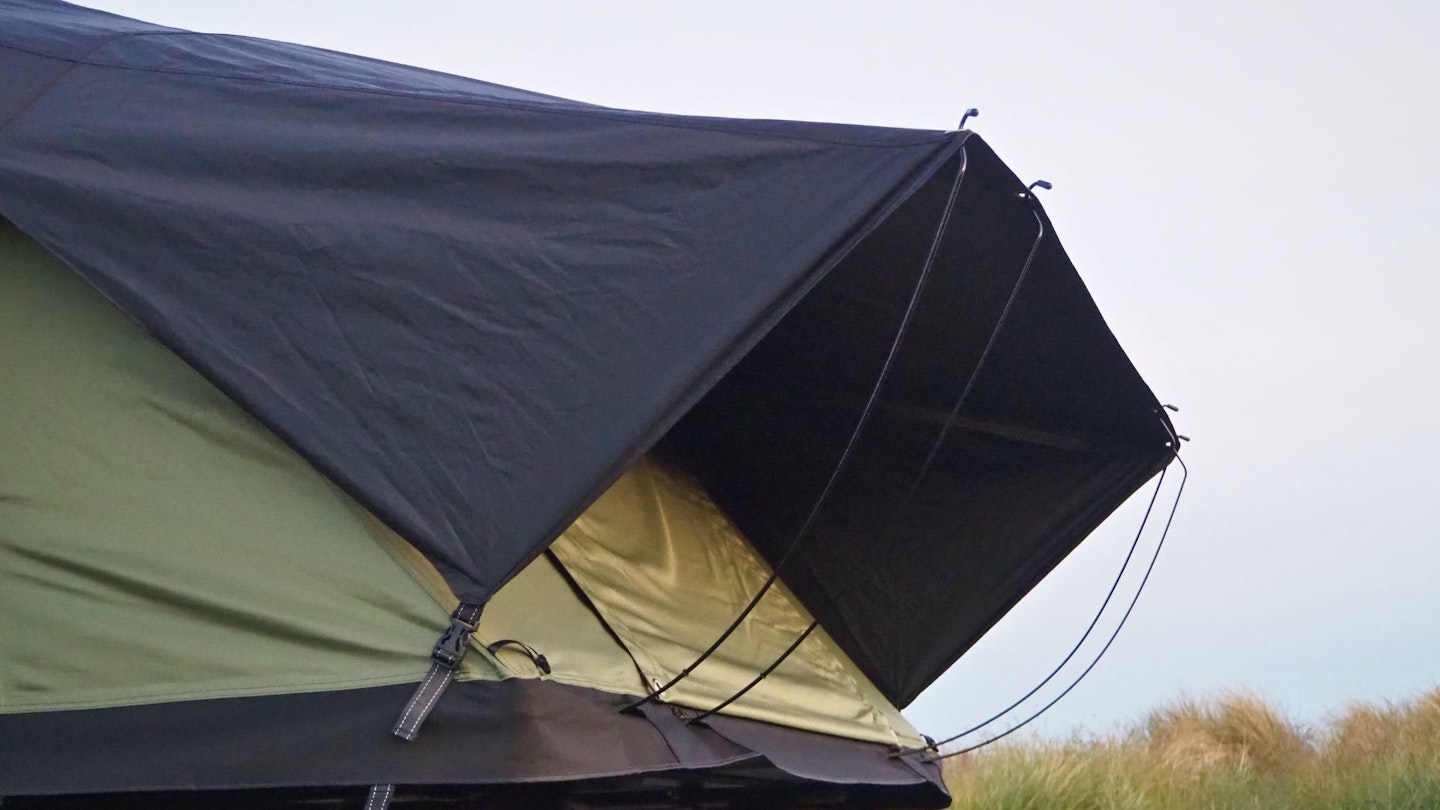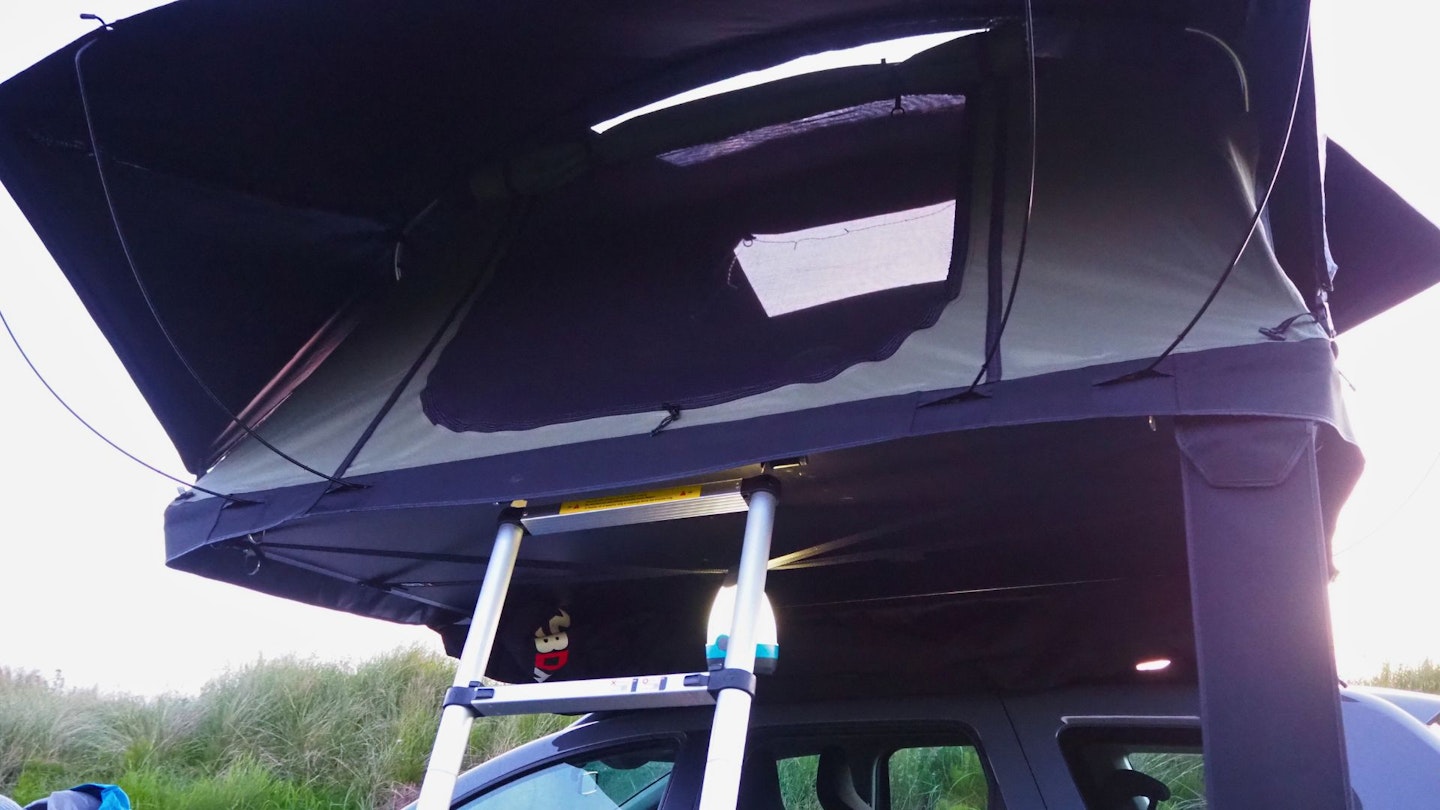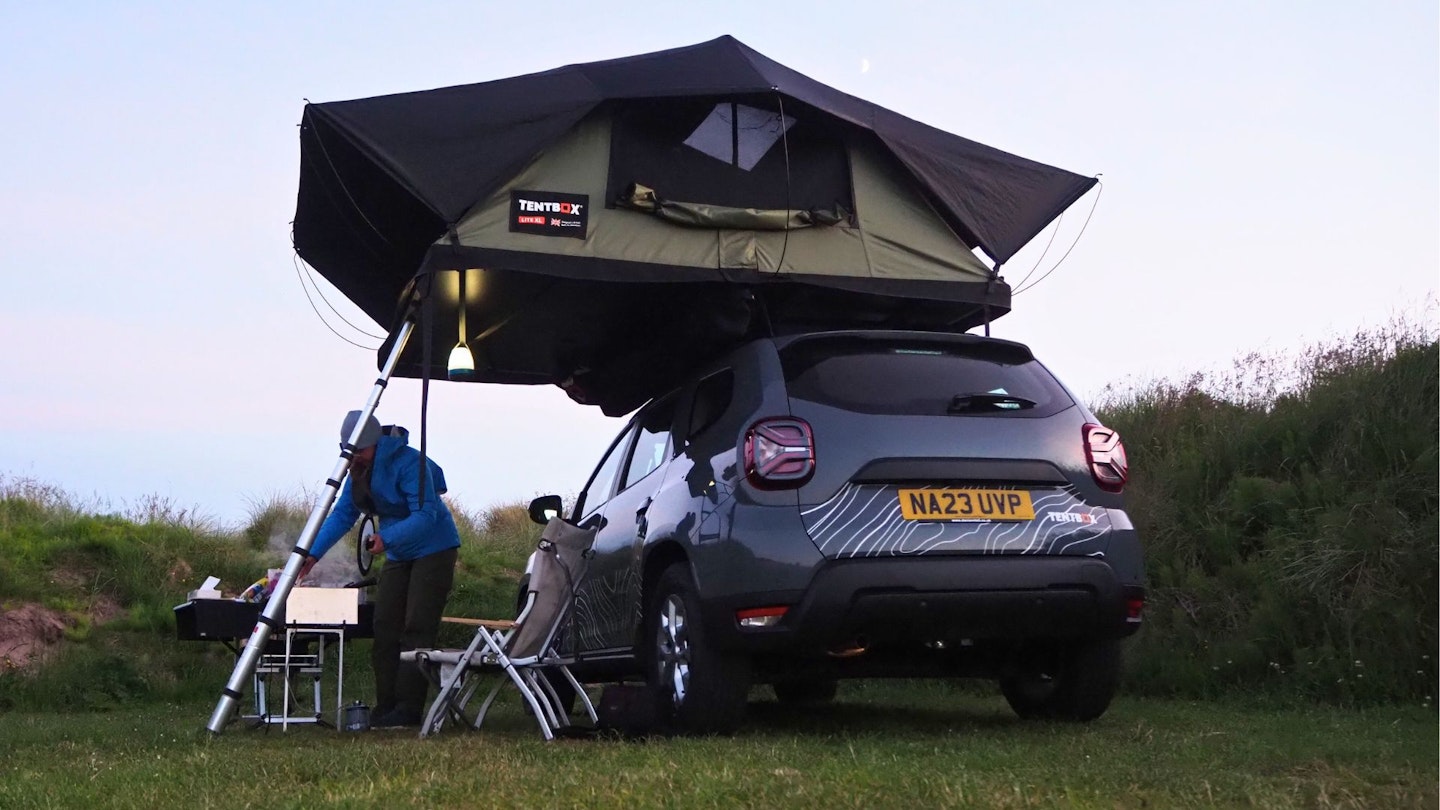The roof tent is a reasonably recent phenomenon – but the idea of sleeping wherever you can park is steadily growing in popularity, especially in the UK. Here at Live for the Outdoors, we've been testing roof tents for the past two years, and have come to believe that these elevated sleeping spaces actually fit within their own category of adventuring, rather than being in direct competition with either hiking tents or larger campsite tents.
That's because, despite its name, the roof tent is more akin to turning your existing car into a small campervan. Roof tents give you the freedom to camp anywhere your vehicle can take you, plus the comfort of an elevated sleeping space, next to zero setup time and a built-in mattress which rivals the comfort of bed at home.
You can also keep the tent totally clean and away from wet or muddy kit, which can then be stored in the car below. But with so many now on the market, which one should you choose?
In this article, our expert outdoor enthusiasts test and rate the best roof tents for campers who want to inject some elevated adventure into their next road trip.
What are the best roof tents of 2025?
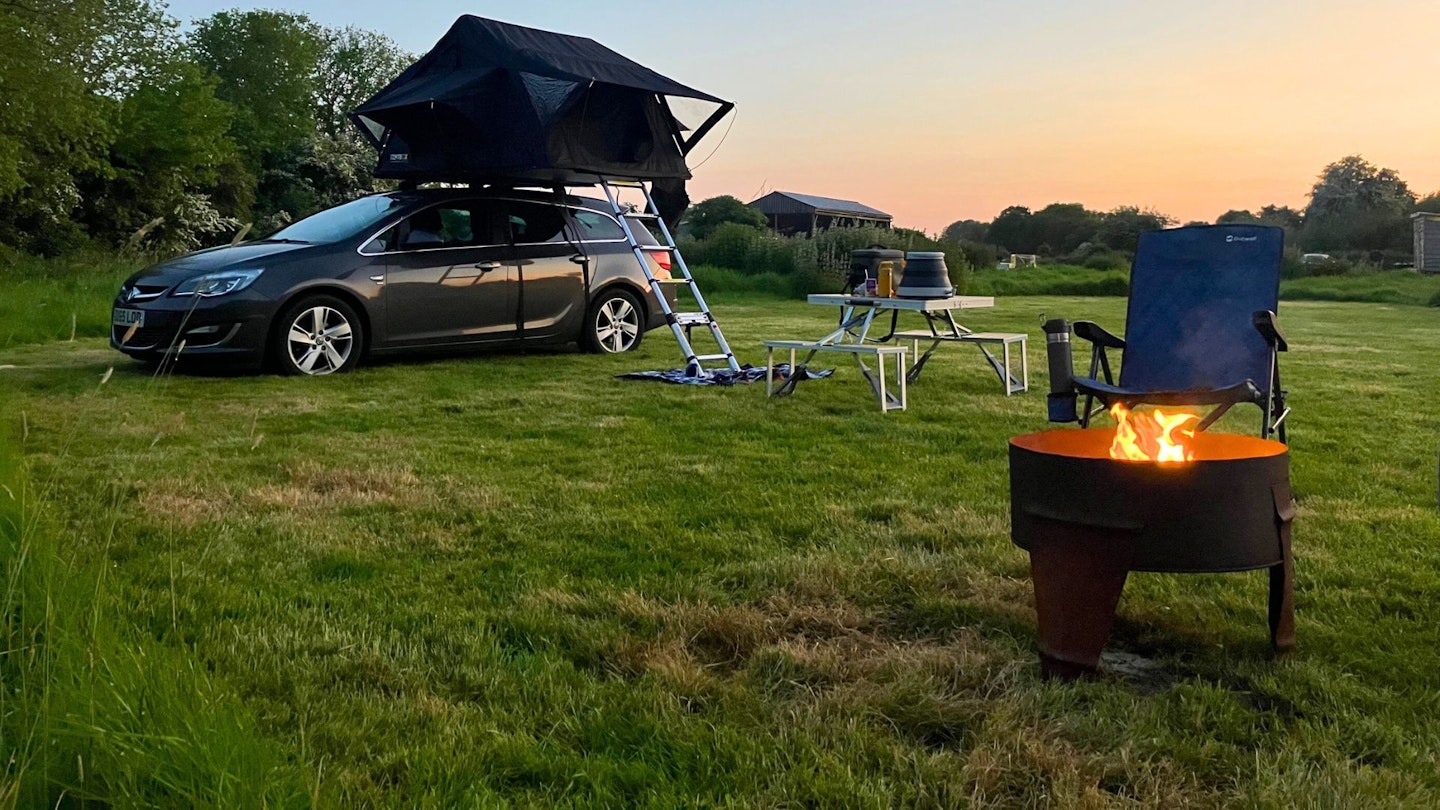
Best overall roof tent: TentBox Classic 2.0
Best value: RoofBunk Explorer Roof Tent
Best for small cars: TentBox Lite 2.0
Best for families: TentBox Lite XL
Best for stargazing: Thule Approach
Editor's note: We last updated this article on 06/09/24, after another busy summer of testing from LFTO's camping team. We've recently taken road trips around the Wye Valley and Scottish Highlands in two of the latest TentBox models, with more testing planned in the early weeks of autumn.
How we tested the best roof tents
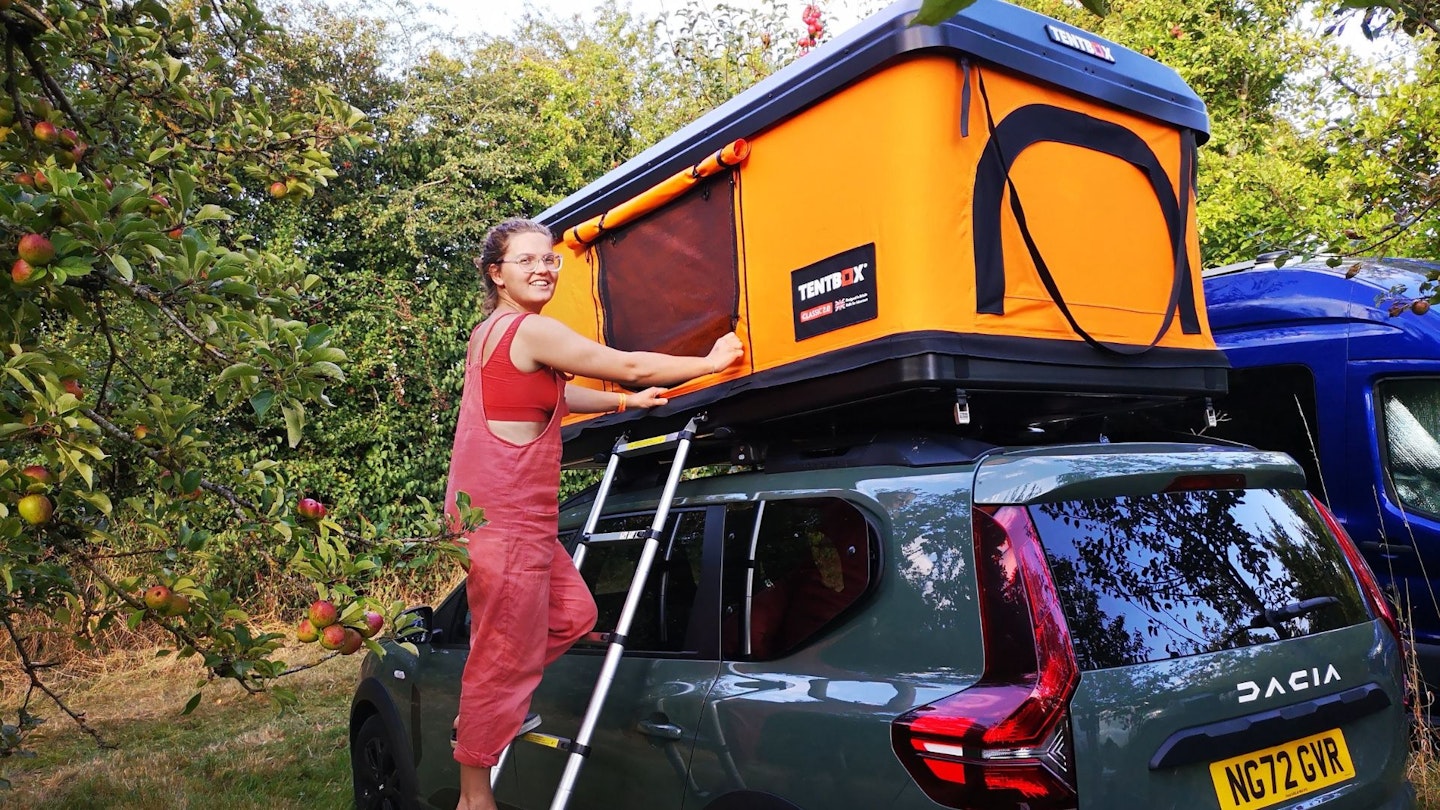
The best roof tents have been tested by three key members of the LFTO and Trail magazine team. These include Group Editor Oli Reed, Senior Writer Chris Williams and Digital Writer Fliss Freeborn. Each tester comes with a very different approach, representing a large proportion of the demographic interested in buying a roof tent.
Oli has a young family for whom a roof tent represents an extra bedroom at a campsite, leaving more space free for toys and games in the family tent.
Chris is a hardcore hiker who enjoys being able to park up anywhere, like remote Highland laybys, to make the most of an early start in the mornings.
And Fliss is an all-round outdoorsy gal, who has tested roof tents at festivals and campsites as a replacement for a small, portable hike tent, or sleeping in the back of her very smelly estate car. Each brings their expert opinion to the below reviews.
Best roof tents reviewed:
Being called the Classic is very apt because this rooftop tent pretty much nails the concept. Real thought has gone into the design of the Classic 2.0, and it shows.
Working from the outside in, the Classic 2.0 tries to be as aerodynamic as possible when collapsed down, partly by having a hard ABS shell rather than folded fabric and partly by being just 35cm thick. Naturally, it attaches to a vehicle roof via roof bars, so you need to have these prior to fitting. Once you do, you can use the included TentBox fixing kit to install the Classic 2.0.
The tent fabric is durable canvas, and the seams are silicone-taped. The zips are also sealed against water ingress. The frame is aluminium, while the hinges and fixings are all stainless steel, so resistance against weathering is sound – the Classic 2.0 is rated up to wind speeds of 39mph.
Inside the Classic 2.0, there is a 6cm foam mattress, which TentBox claims is even more comfortable than the one fitted in the original Classic. TentBox also offer a memory foam topper as an extra if you want even more comfort. This mattress covers the entire floor and measures 210 by 120cm, which is similar to that of a two-person hiking tent.
The canvas walls offer good breathability, as users of old camping tents will know, and there is a Thermal Kit add-on for the Classic 2.0, which insulated the interior and makes it useable in winter. There are also a couple of side pockets, a cargo net for storage, and even an integrated LED light bar. Aiding convenience even more, is the ability to leave your sleeping gear inside when you collapse the Classic down and continue your journey.
The Classic is quite an investment, but we think it's worth if you want the very best roof tent.
Read our full TentBox Classic review here
Pros
- Hard shell design
- Gas struts
- Sturdy
- Useful accessories available
Cons
- Heavier than soft shell models
| Sleeping capacity: | 2 |
| Weight: | 67kg |
| Dimensions open; | 128 x 218 x 100cm |
| Dimensions closed: | 128 x 218 x 35cm |
| Wind rating: | 39mph |
| Materials: | 280gsm rip-stop polyester canvas walls (3000mm HH); UV-protected ABS shell |
We haven't done a long road trip in the RoofBunk Explorer, but having checked out all of the key features we think it ought to be on your radar if you're hunting for a roof tent.
The Explorer boasts the same generous sleeping space (140 x 240cm) as the Latitude Pioneer, with the option of adding a porch/annex for more internal space if you want to. To expand space further, there is also a 3-4 person Explorer XL model.
At 50kg, the Explorer weighs the same as the TentBox Lite 2.0. This, plus roof racks, puts the Explorer well within the dynamic load limits of most cars, even hatchbacks. Though, of course, you need to check this beforehand in your vehicle manual.
The Explorer uses 280gsm polycotton body and a 600D polyester fly, which RoofBunk says have waterproof ratings of 3000mm HH and 5000mm HH, respectively. RoofBunk also says the Explorer can cope with winds up to 40mph.
It's important to note that it's not as sleek as hardshell models when packed down, using a heavy-duty PVC cover instead. We've no qualms about durability and protection, but it does make the Explorer a bulkier, less aerodynamic package.
Pros
- Lightweight
- Enticing value
- Durable materials
- Generous sleeping space
- Larger XL model also available
Cons
- A bit bulkier than a hardshell design
| Sleeping capacity: | 2-3 |
| Weight: | 37.4kg |
| Dimensions open: | 140 x 310 x 130cm |
| Dimensions closed: | 140 x 120 x 30cm |
| Wind rating: | 40mph |
| Materials: | 280gsm ripstop outer (3,000mm HH); 600D Oxford polyester fly (5000mm HH); 1200D PVC road cover |
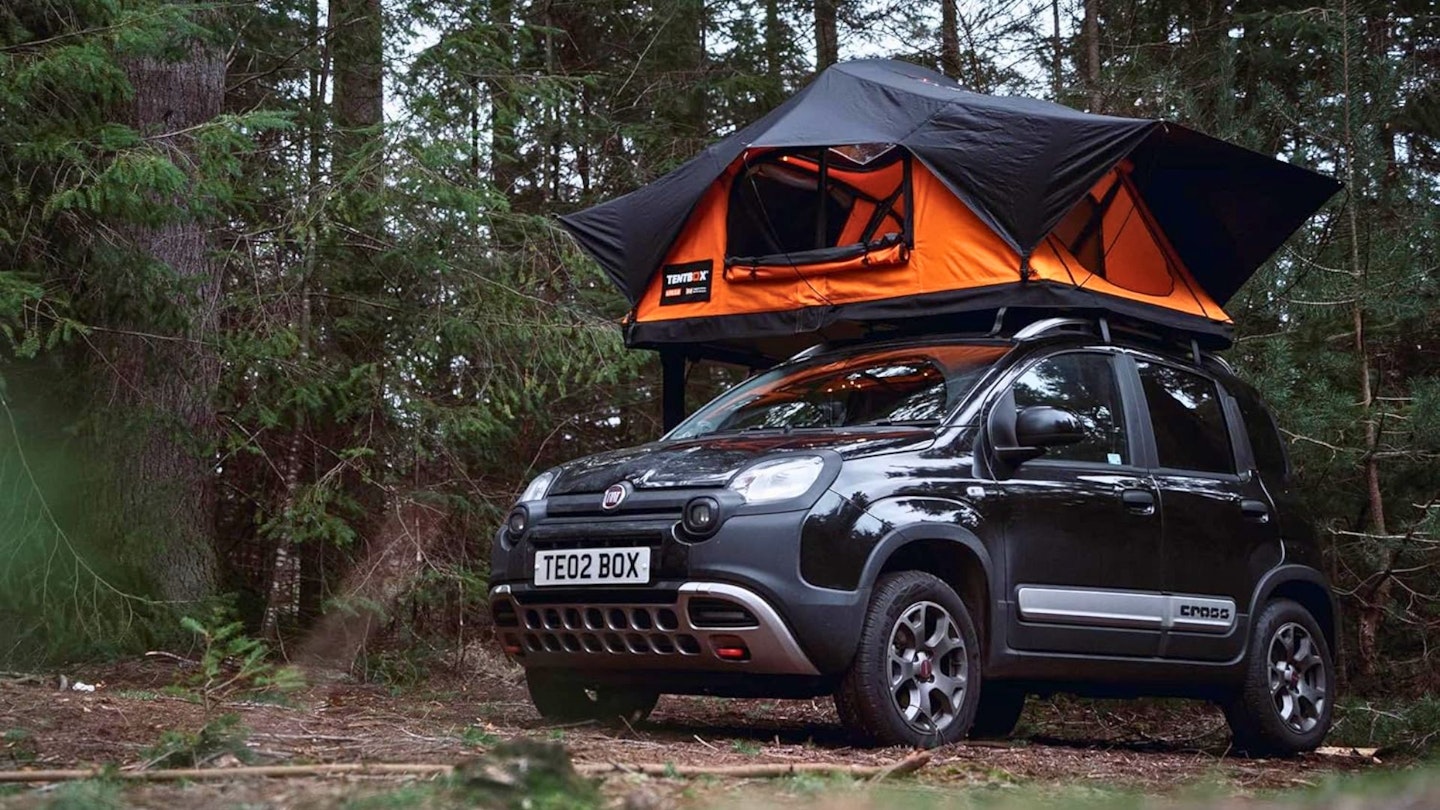 TentBox
TentBoxtentbox.com
The Tentbox Lite 2.0 makes better what was already an excellent model. To update and improve the original Lite, TentBox has added another skylight and enlarged the windows. It's also redesigned the rainfly to make it easier to set up and require fewer poles. TentBox has turned on the travel cover too, using non-fading Cordura-style fabric and replacing most of the Velcro with heavy-duty zips.
The model is a perfect starter option if you like the idea of a roof tent but don't want to fork out for a top-spec model straight away. At 50kg, it's the lightest option in the well-regarded Tentbox range (which also includes the higher-priced Classic and Cargo models), and that's because its feature set is much more stripped back. Our editor Oli has been road-testing in it for past three years, everywhere from the Lake District to local campsites, and is a massive fan of how it takes so much of the faff out of camping trips.
This is basically a pop-up canvas tent that unfolds on the roof of your car. Like most roof tents, the Tentbox Lite attaches very simply to your car's roof bars. Once you've got it all unboxed and attached, all you need to do is drive to your camping spot, remove the PVC cover, unbuckle a few straps, flip it open, drop the telescopic ladder, and you're good to go.
The Tentbox Lite comes with a comfortable 6cm memory foam mattress that fills the whole interior of the tent. It also has plenty of options for venting and letting in light, with doors at each end, windows at the sides, and two skylights on the roof.
The original Lite sometimes built up a fair bit of condensation during the night. But the 2.0 has better ventilation and uses more breathable materials to reduce this. There is also the fact that when you don't want it on your car, you need a second person to help you safely remove it, and either a big shed or a garage to store it in. But that's the case with almost all other rooftop tents too.
All in all, the Tentbox Lite is an impressive roof tent at a good price.
Read our full Tentbox Lite roof tent review
Pros
- Spacious sleeping quarters
- Reasonable value
- Suitable for smaller cars too
- Larger 4-person XL version available
Cons
- RoofBunk roof tent is even better value
| Sleeping capacity: | 2 |
| Weight: | 50kg |
| Dimensions open: | 133 x 220 x 105cm |
| Dimensions closed: | 133 x 110 x 25cm |
| Wind rating: | 39mph |
| Materials: | 280gsm ripstop polyester main (3,000mm HH); 210D polyester fly (5,000mm HH); 600D cover |
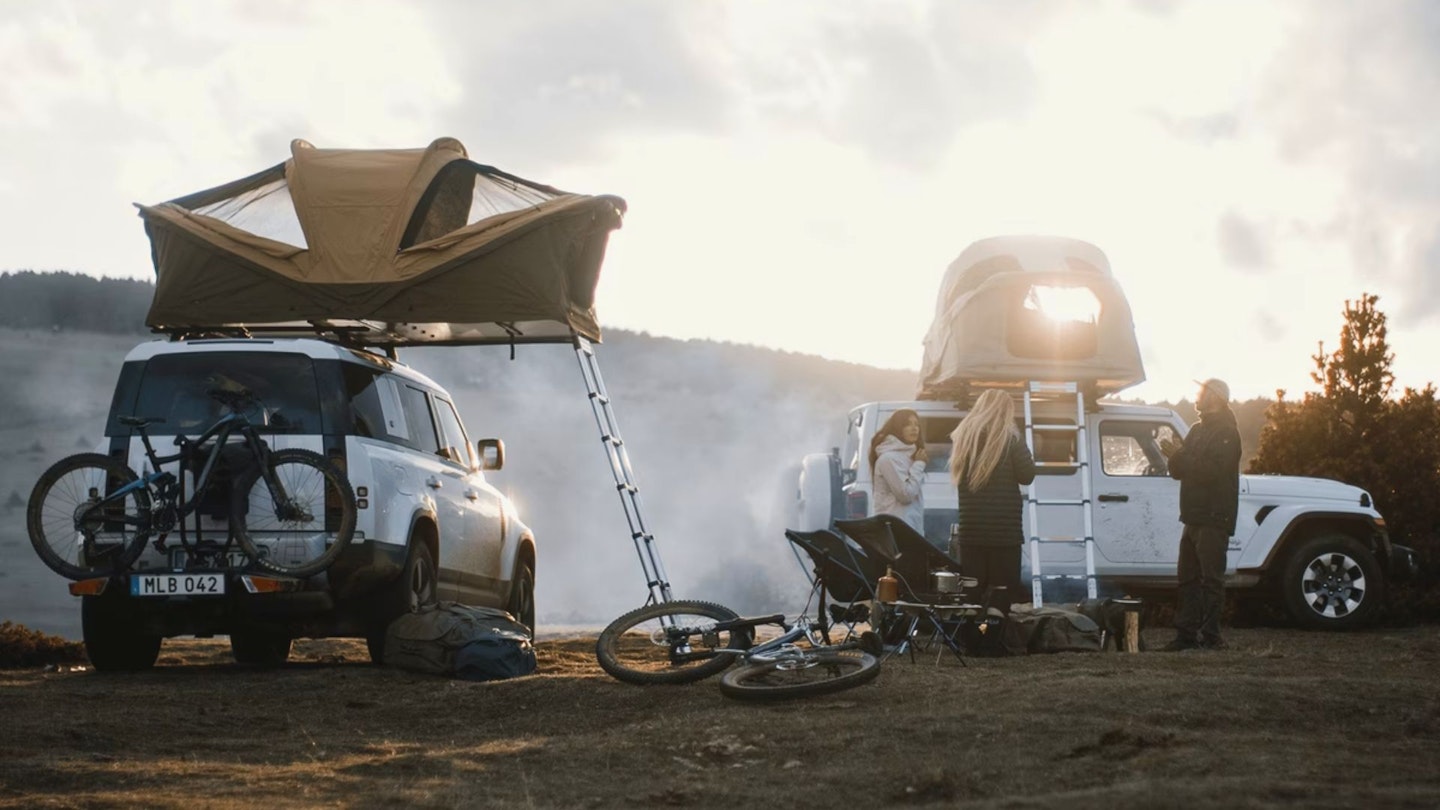 Thule
Thulewww.gooutdoors.co.uk
The TentBox Classic may have been voted Best Roof Tent by our testing team, but if you're willing to spend more, the Thule Approach is a roof tent jam-packed full of ingenuity.
Those who enjoy stargazing - and we'll take that as everyone - can make use of the four large skylights. Using ceiling windows is a clever touch because you essentially get a panoramic view but also some privacy at the same time.
Like the TentBox Classic, an insulator can be fitted to the Thule Approach, making it easily adaptable to cold temperatures and increasing its versatility. Adding to that is the Approach's rain cover. It boasts a few different configurations, including a Storm Mode for complete weather protection.
Other accessories include an impressive awning and even a shoe organiser. The Thule Approach is an expensive option, no doubt about that. But Thule always delivers on clever design and longevity, and the Approach proves that.
Pros
- Neat accessories
- Clever and unique design
- Three sizes available
Cons
- Most expensive option here
| Sleeping capacity: | 2-3 |
| Weight: | 58kg (size M) |
| Dimensions open: | 143 x 240 x 102cm |
| Dimensions closed: | 143 x 124 x 28cm |
| Wind rating: | Not given |
| Materials: | 600D polyester ripstop |
 Latitude
Latitudeoutdoorroadie.co.uk
We got our first look at Latitude's roof tents at a recent outdoor show, and it's fair to say they made a strong first impression. The Pioneer is the lowest-priced option in Latitude's range and is very close in price to the ever-popular TentBox Lite, which it shares a lot of similarities with.
Like many rooftop tents, the Latitude Pioneer will fit almost any vehicle, from hatchback all the way to SUV or campervan, as long as it has roof bars fitted. And once installed, the Pioneer can be set up in a matter of minutes by simply folding out and popping up into full tent form. It's very roomy inside and can officially sleep 3 adults, but that would be snug! Far better for a couple or maybe one parent with two young kids.
The Pioneer's mattress is 6cm high-density foam, and we can vouch for its comfort. The mattress dimensions are 140cm x 240cm, so it's bigger than a double bed, and you can even fold the tent down with sleeping bags and pillows already in position. Which means more space in your car and that your bed is ready to go as soon as you open the tent.
Most of the info above, you'll already be familiar with from other roof tent reviews. But what made the Latitude Pioneer stand out for us was the high quality of the materials, the attention to small details, and the passion of company owner and founder Charlie, who gave us a tour of his creation.
The Pioneer is fully waterproof, with all edges double-stitched with a silicone sealant backing for extra durability. The stainless steel hardware and aluminium tubes all feel built to last, and the windows, doors, and skylights are well-positioned to give you great views when you want to lay back and admire the surrounding landscape. You also get a telescopic ladder, hanging shoe bag, internal stash pockets, and Velcro access panels so you can run cables from the car into the tent.
Is it as good as the TentBox Lite? Hard to tell without giving it a long-distance test drive, which we'll be doing soon – stay tuned!
Pros
- Spacious and comfy mattress
- Lots of cool accessories
- Fits almost any car
- Quality materials throughout
Cons
- 4kg heavier than TentBox Lite 2.0
| Sleeping capacity: | 2-3 |
| Weight: | 54kg |
| Dimensions open: | 140 x 213 x 130cm |
| Dimensions closed: | 140 x 125 x 25cm |
| Wind rating: | Not given |
| Materials: | Ripstop, UV, and mould-resistant polycotton canopy; 420D Oxford polyester fly; PVC travel cover |
Most roof tents aim to cater for two people but there are some that can accommodate more. The TentBox Lite XL is the brand's largest model, designed for four people. We tested it on a summer trip to Scotland's northwest coast and loved it.
The foldout design features a soft cover and measures 183cm by 120cm, doubling to 240cm when opened, allowing for a super king-sized mattress. The tent's aluminium frame, 280gsm canvas, and 210D polyester flysheet make it durable and very weatherproof but predictably bulky at 62kg. We found it's therefore best suited for fitting to medium to large vehicles.
Despite being larger, the Lite XL remains as easy to pitch and take down as any other roof tent. And in terms of comfort, it's superb. Inside, the 6cm mattress and sturdy walls provide comfort, while multiple windows offer versatility and ventilation. It comfortably fits three adults or two adults and two children. You could sleep four adults if you wanted but you'd need to take the tent's 300kg internal weight limit into consideration.
Durability and comfort are highlights of the Lite XL. However, TentBox still uses PFCs and PVC, which are claimed harmful substances that many outdoor brands are moving or haved already moved away from.
Priced at £1895, the Lite XL offers good value considering the extra space and is our favourite large roof tent. But it's by no means the only one.
Read our full TentBox Lite XL review
Pros
- Fast to pitch and pack away
- Well ventilated
- Truly spacious enough for four people
- Durable and weatherproof
- Skylights are a great feature
Cons
- 300kg internal weight limit arguably a bit low for a 4-person tent
- Not very aerodynamic when packed away (noticeably reduces car fuel economy at motorway speeds)
| Sleeping capacity: | 4 |
| Weight: | 62kg |
| Dimensions open: | 183 x 240 x 115cm |
| Dimensions closed: | 183 x 120 x 25cm |
| Wind rating: | 39mph |
| Materials: | 280gsm polyester inner (3000mm HH), 210D rainfly (5000mm HH), 600D PVC road cover |
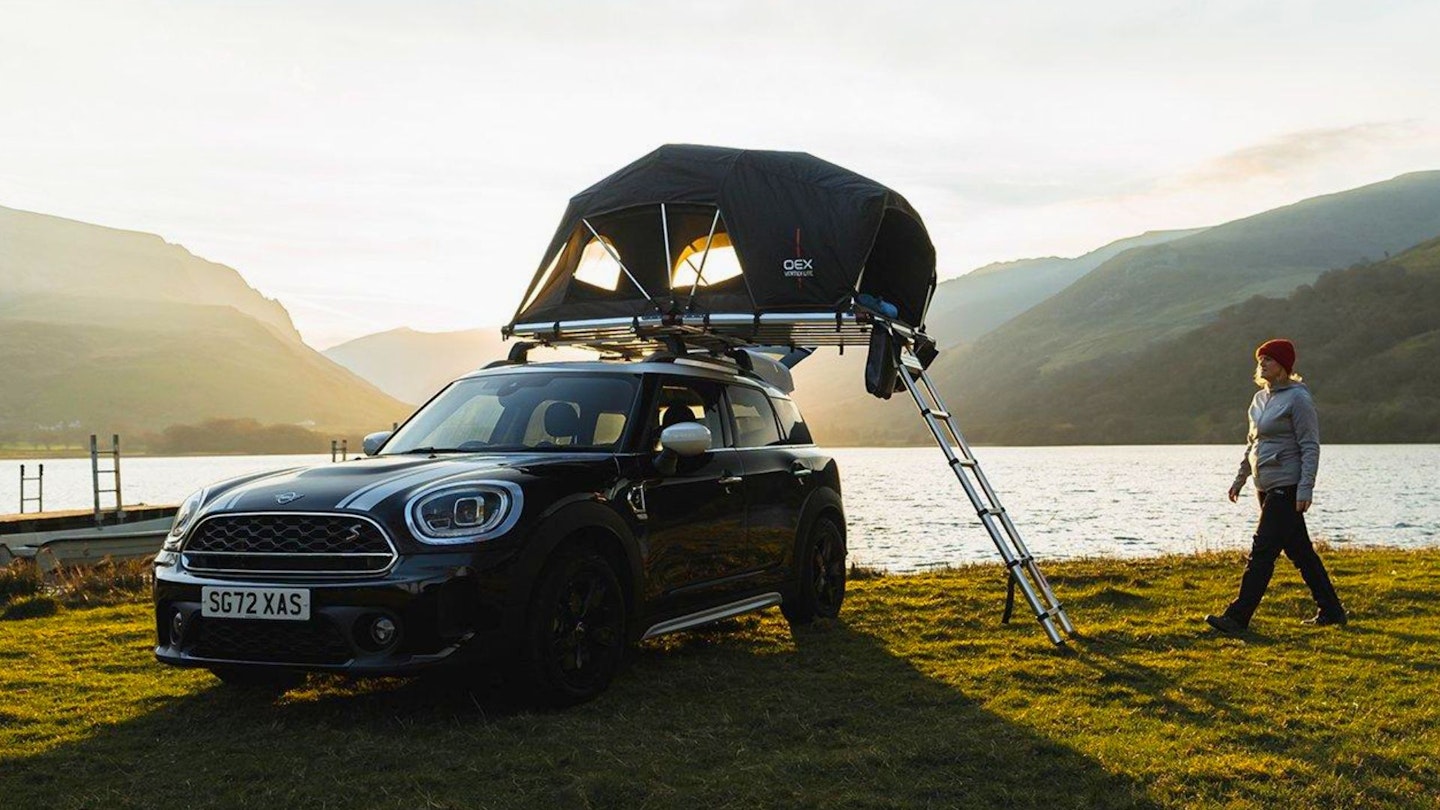 Blacks
Blackswww.gooutdoors.co.uk
We wanted to draw your attention to OEX Vertex Lite because it has a very eye-catching price tag of well under a grand (RRP is £1500 but we've never seen it priced at more than £1000).
We haven't fully tested it yet, but think it's well worth investigating by those considering a roof tent who may be understandably hesitant because of price.
Because of the Vertex Lite's low weight of under 40kg and because it folds out, it's suitable for any vehicle, including smaller hatchbacks.
It has a decent waterproof rating of 3,000mm HH and comes with a tough 600D cover. But we have noticed it is decidedly narrower than the other options here at just 110cm of internal width, which could be restrictive for some.
Pros
- Lightweight
- Very enticing value
Cons
- Quite narrow
| Sleeping capacity: | 1-2 |
| Weight: | 50kg |
| Dimensions open: | 115 x 217 x 106cm |
| Dimensions closed: | Not given |
| Wind rating: | Not given |
| Materials: | Oxford ripstop outer (3,000mm HH); 600D polyoxford cover |
What to look for in a roof tent
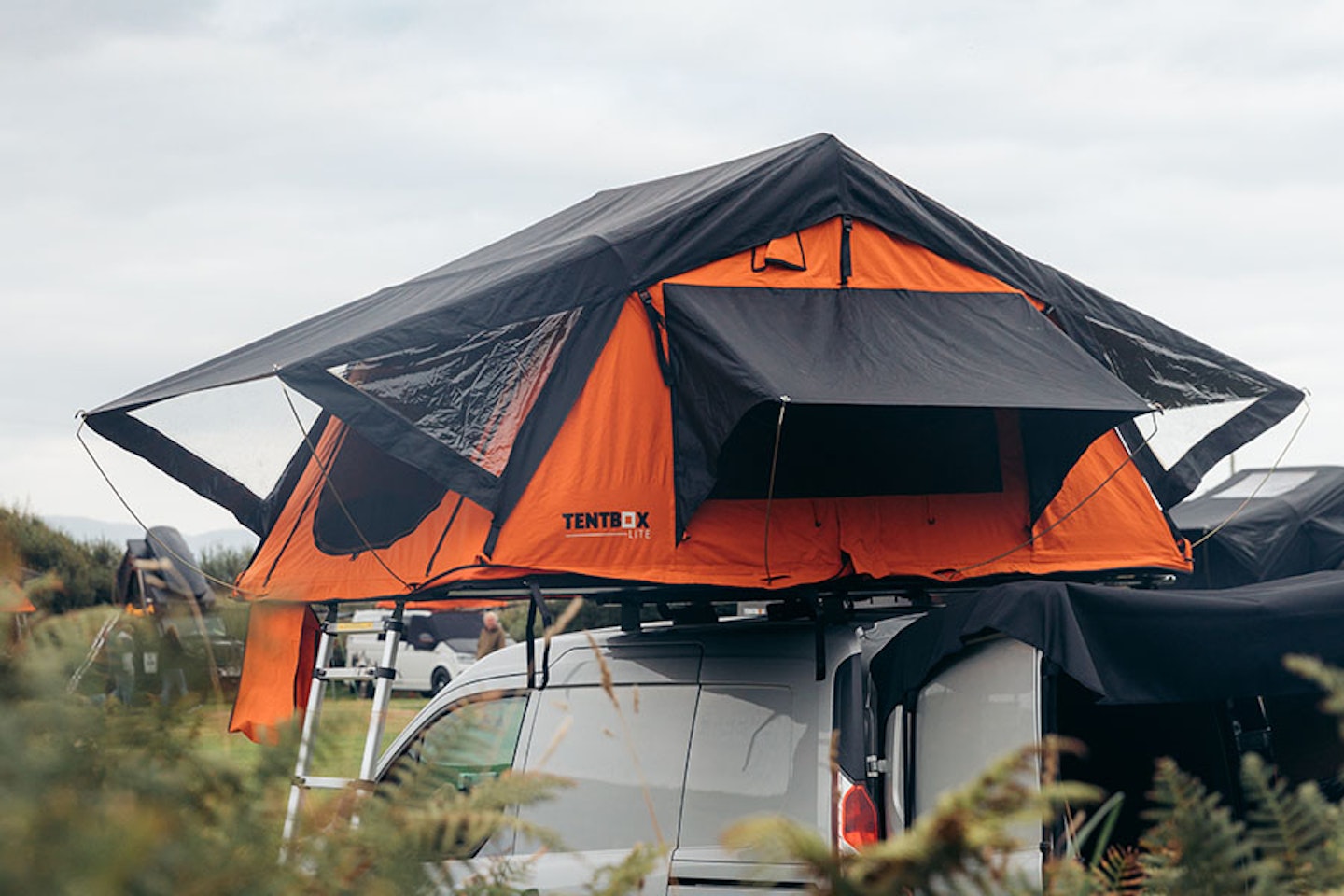
What type of vehicle can support a roof tent?
Rooftop tents vary in size, and some are suitable for bigger vehicles only. Roof tents that have folding bases can often be fitted to small cars, while single-piece roof tents might require at least a medium-sized car.
We've used them on estates, SUVs and the Dacia Jogger below without any issues, and have seen them being used with no issue on cars as small as a Fiat Panda. The key thing is checking the specifics of both your roof tent and car before buying.
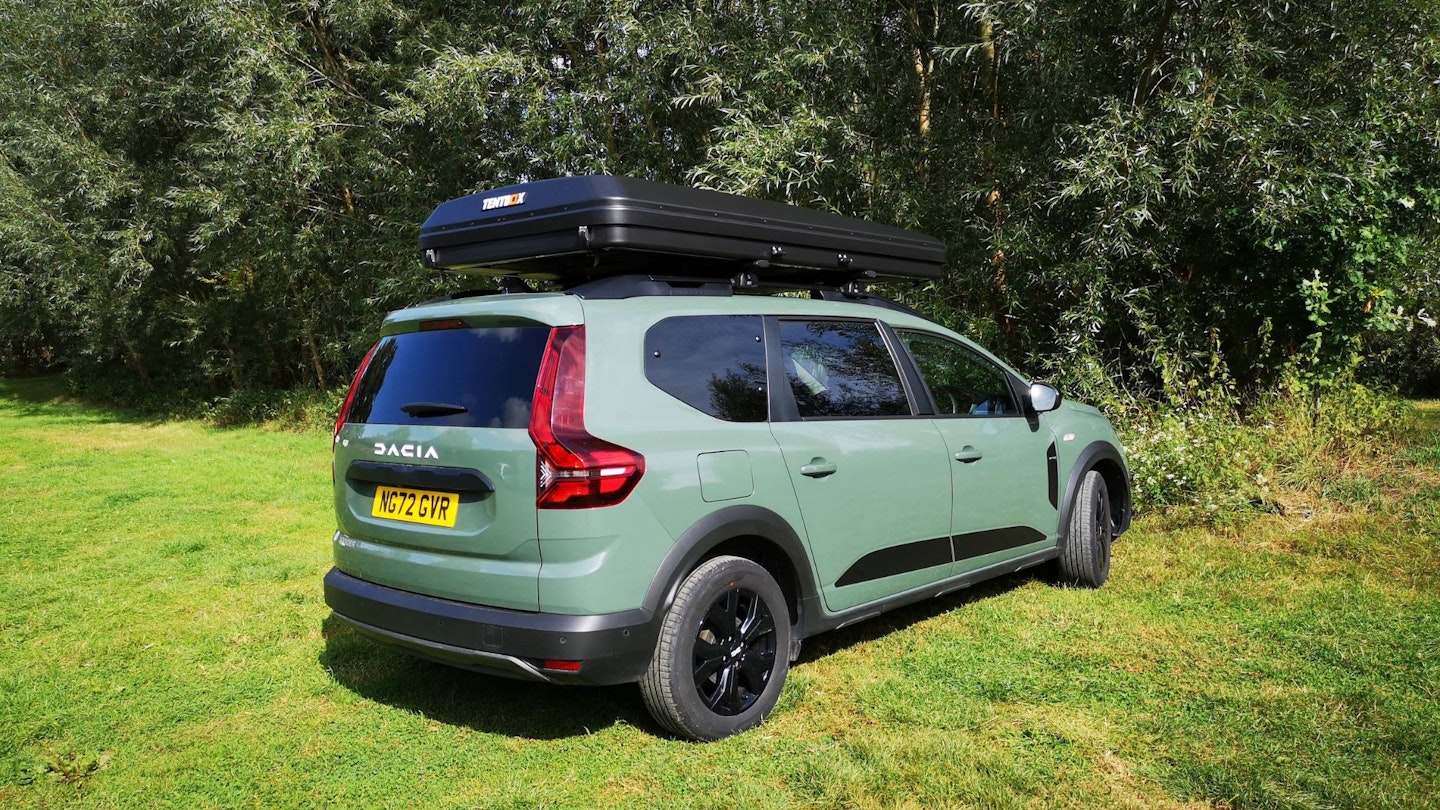
Vehicle roofs all have a dynamic roof load limit. You need to know what this is before putting any significant weight on your car roof. Specifically, the dynamic roof load limit refers to the maximum weight a roof can bear while being driven. When parked, the load limit is several times higher.
How easy is it to install a roof tent?
Most roof tents must sit on lateral roof bars (not just factory-fitted side rails!), so you'll need these too. It's easy to find the correct ones for your car by using the online search filters provided by retailers like Halfords. Another trusted retailer would be Autodoc. Roof tent specialists such as TentBox help you find the right ones for your car.
In terms of installation, it's a pretty simple process of affixing the tent base to roof bars, but roof tents tend to weigh between 45 and 70 kilograms, so bear in mind you'll want a helping hand getting these things on and off your car.
How long does it take to pitch and set-up a roof tent?
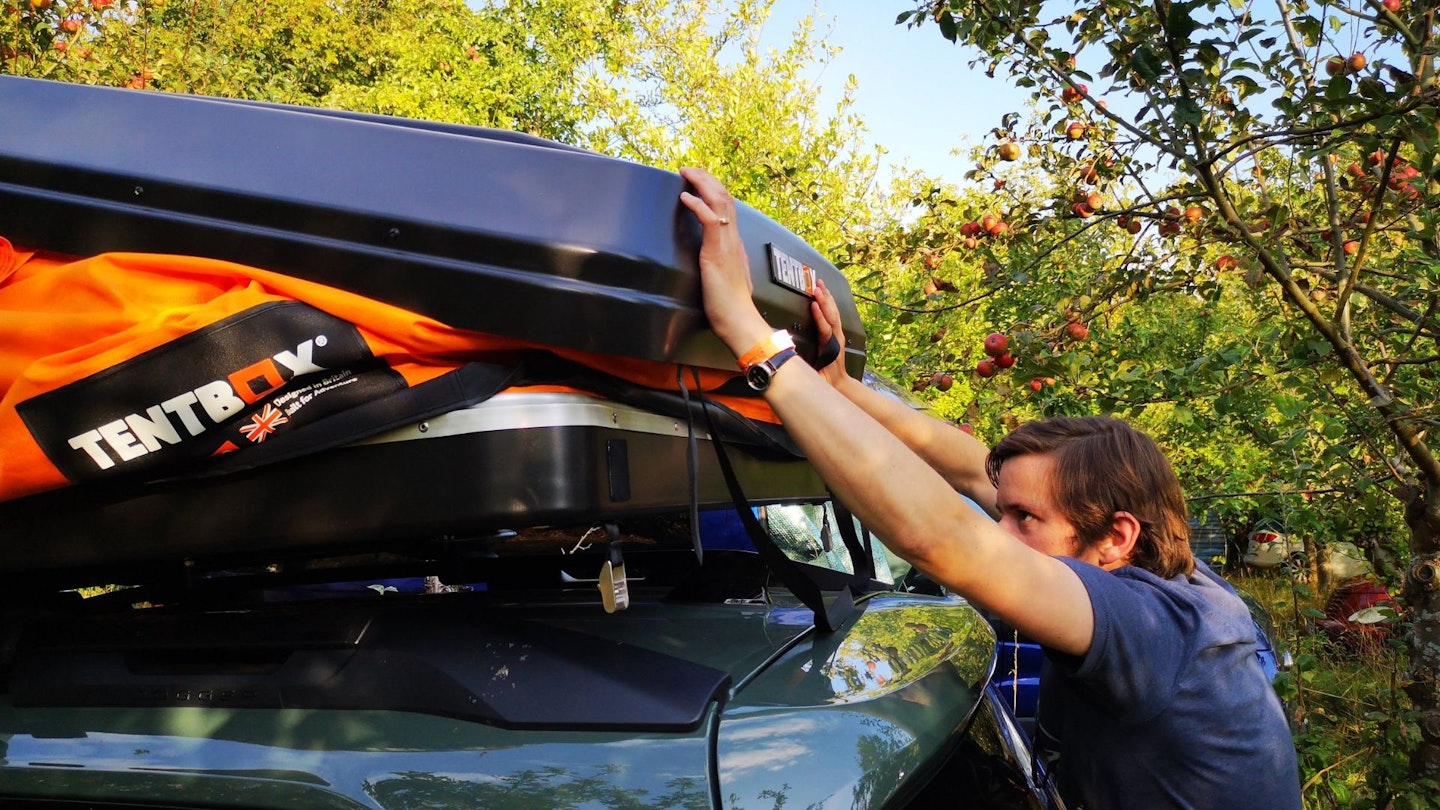
Roof tent setup is a huge contributor to their success. It is incredibly easy. For a foldout roof tent, it takes a minute or two; for a hardshell roof tent, it takes about 30 seconds. Roof tents are so much faster to set up than any other type of tent.
Are roof tents comfortable?
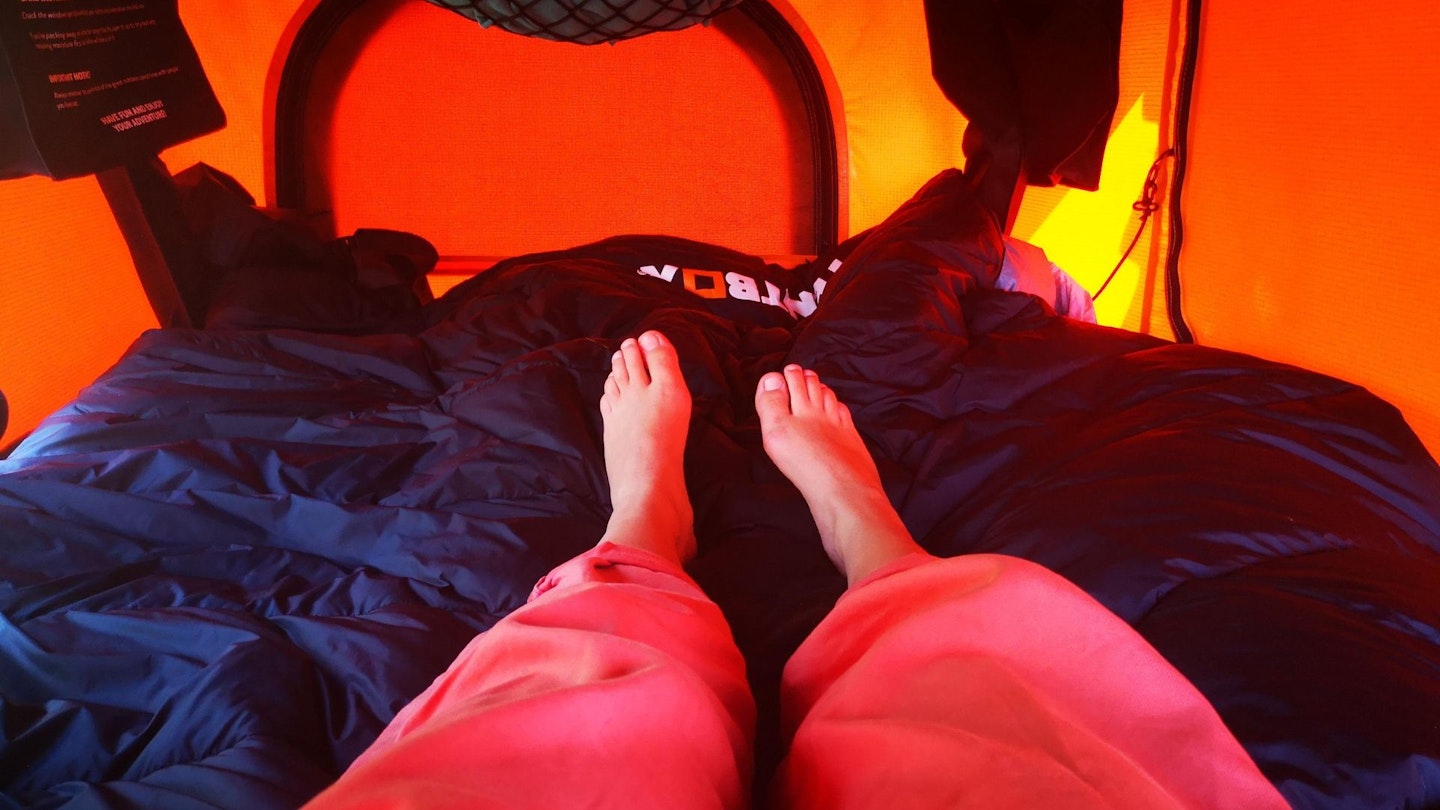
Roof tents tend to have about the same bedroom space as a two-person hiking tent, give or take a few centimetres.
However, in our experience, roof tents offer better liveability and comfort because they feel more like a bedroom thanks to a proper mattress and thicker tent walls. Some models have extra niceties like skylights too.
How do roof tents handle different weather conditions?
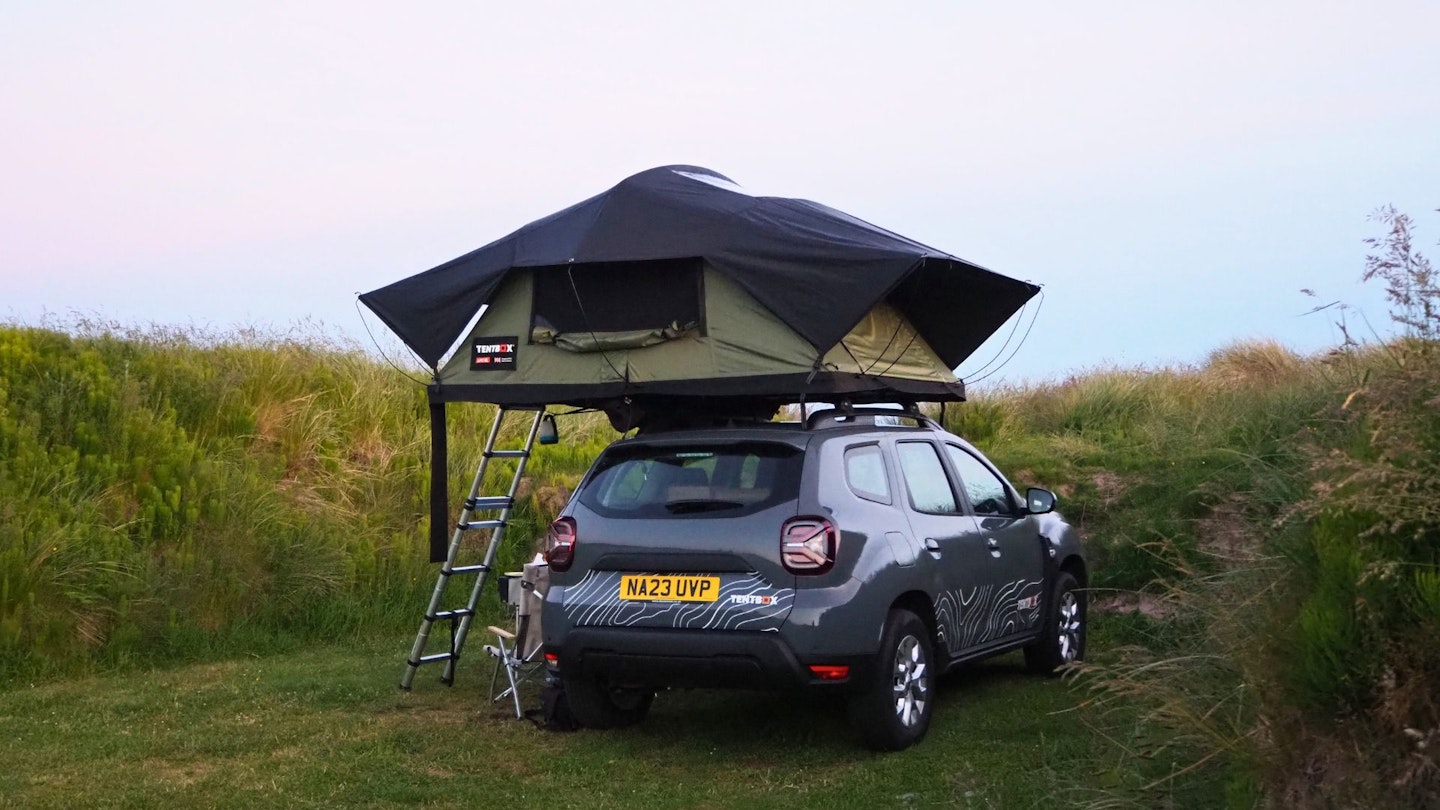
Being elevated off the ground, one might think roof tents are susceptible to breaking in bad weather but you needn't worry. We've found that roof tents handle windy conditions just fine. Their thick fabrics and metal frames are very strong, although it always pays to try and find a sheltered camping spot if you can.
Likewise with rain, roof tents have held up very well in our experience. The only slight issue in this regard is that roof tents don't have a vestibule, so there isn't really a place to put on your boots before heading out (unless you don't mind keeping your footwear in the bedroom with you but we're not fans).
Roof tents can be used in all seasons, which certainly adds to the appeal.
What is the price range for quality roof tents?
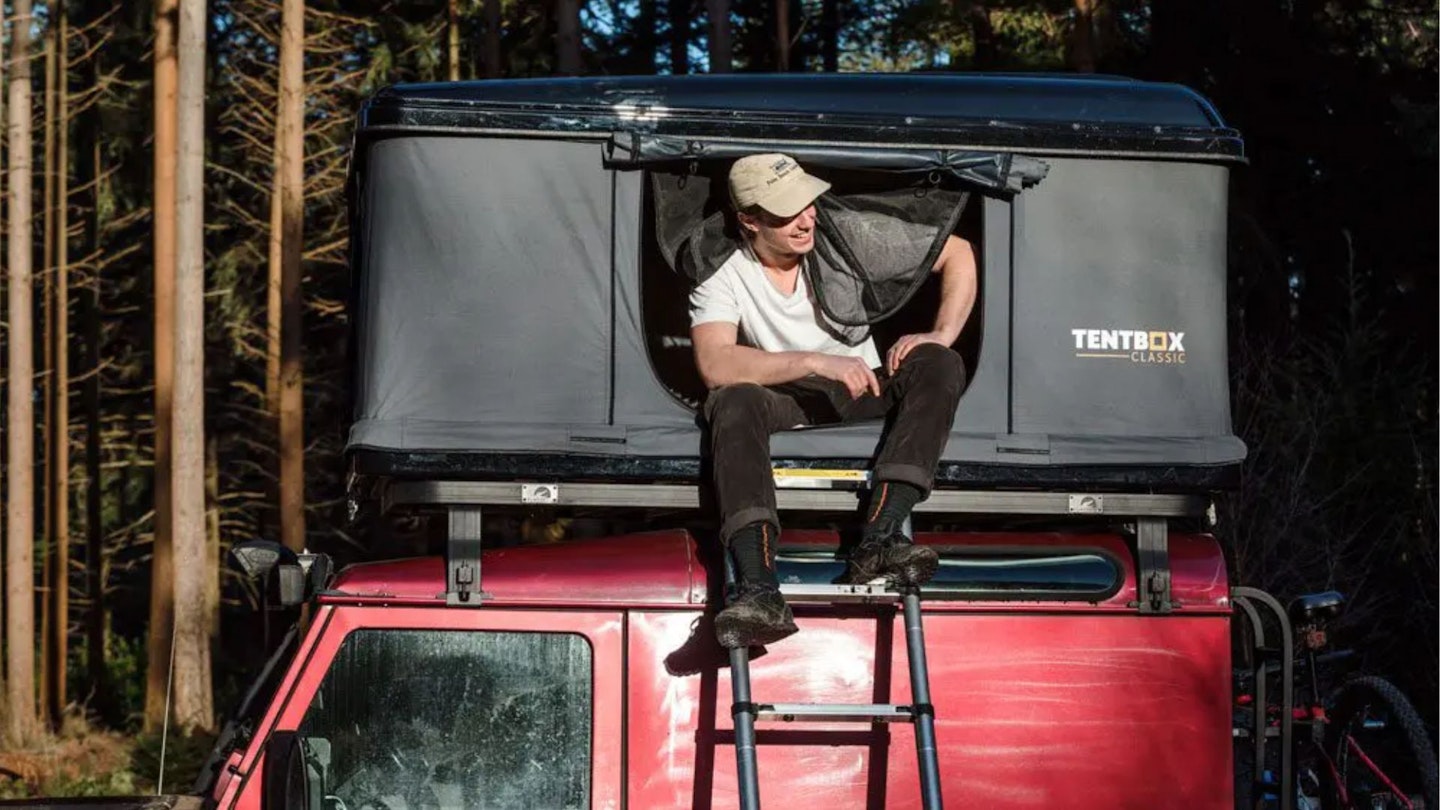
You're look at a price range from around £1000 up to £3000 or more. Things such as whether the tent has a hard or soft shell, number of luxury features, and high-quality fabrics influence price. Even if you're a first-timer, it pays to invest in a high quality roof tent. You'll ultimately have a better experience, which counts for a lot. Plus, if you decide to sell it down the line, you'll get a reasonable second-hand price for it.
How do roof tents affect vehicle fuel efficiency?
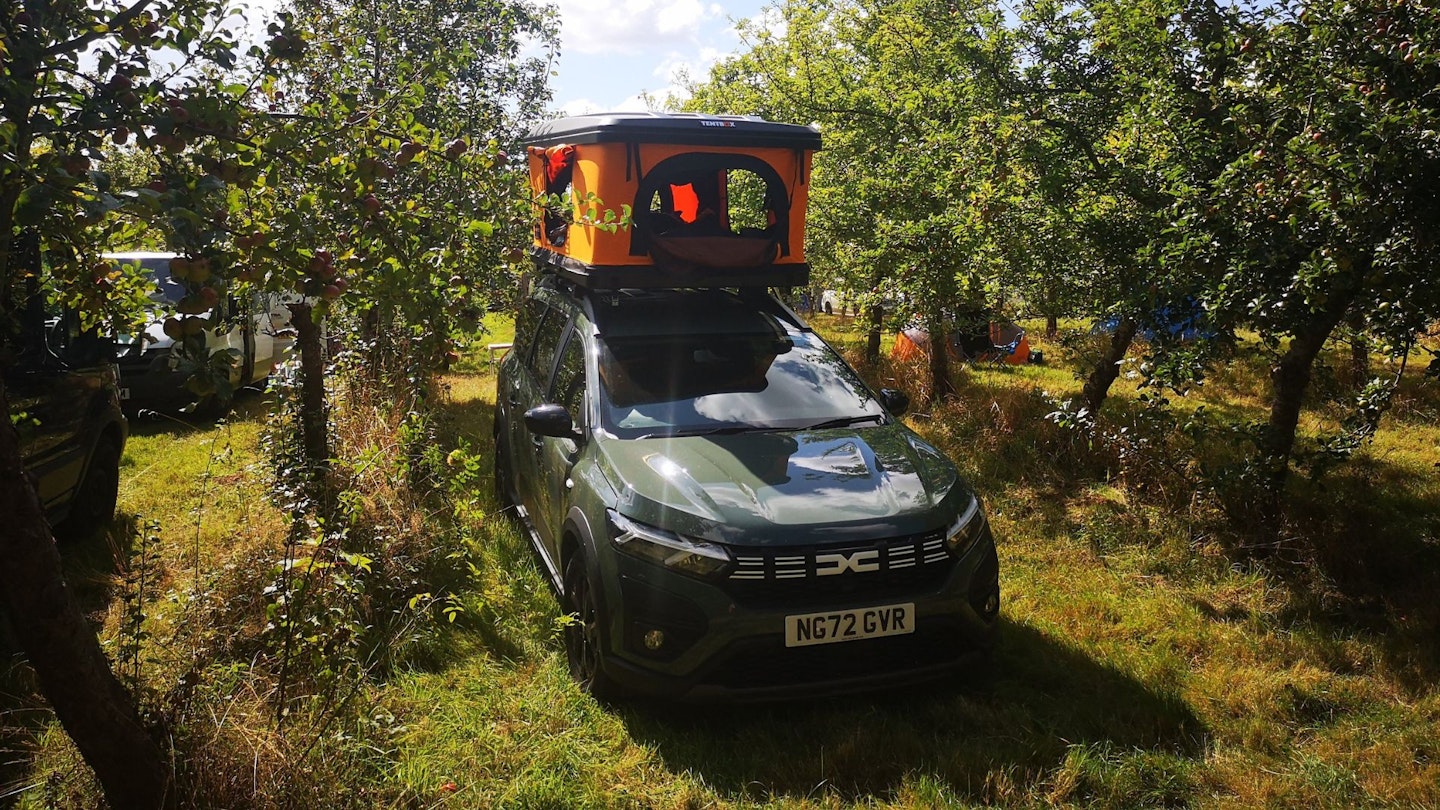
Roof tents that collapse down into a sleek hard shell are more aerodynamic and aesthetically satisfying than those that sit under a heavy-duty soft cover. Hard shell roof tents also have a significantly lower impact on fuel efficiency, but they cost more to buy.
Those that use a softshell road cover do have a nocticeable impact on fuel efficiency at motorway speeds, we've found. But at under 50mph, they have very little impact.
What are the benefits of hard-shell vs. soft-shell roof tents?
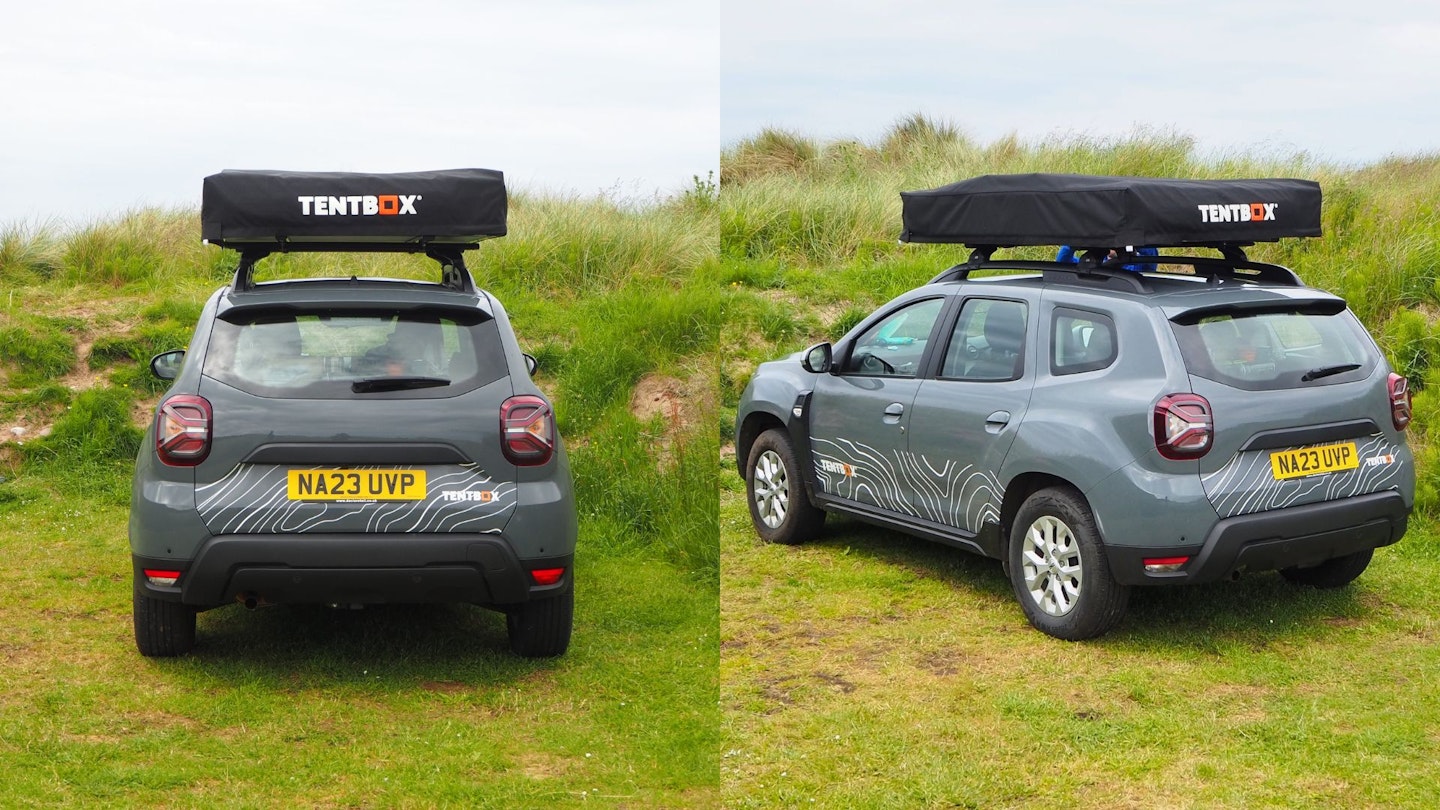
One is improved aerodyamics when closed, which, as we've covered above, lessens the impact on fuel efficiency and reduces wind noise.
Another benefit is that you can leave your bedding inside the tent when it collapses down. Bedding can't be left inside soft shell roof tents because they fold over in order to be packed away.
What accessories are available for roof tents?
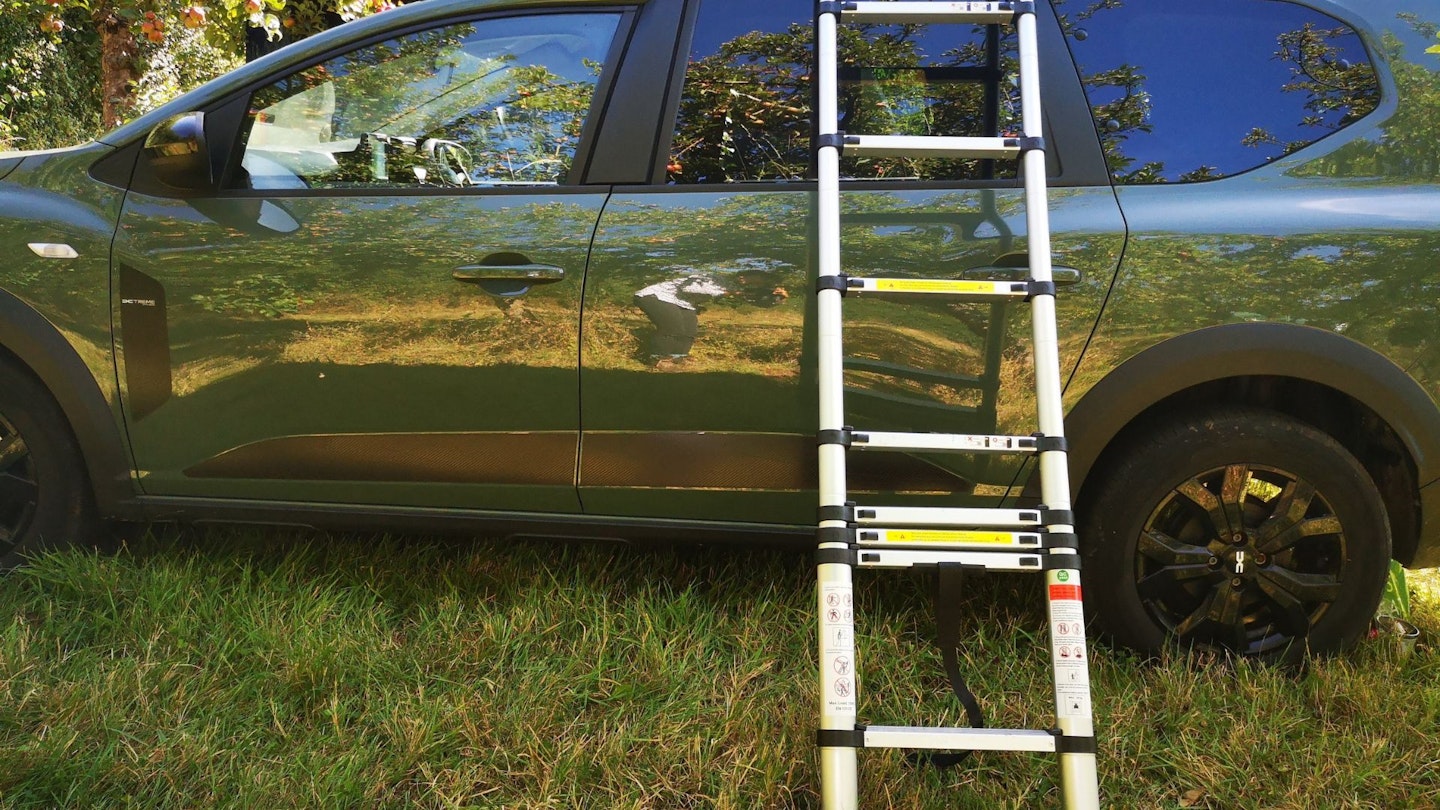
As standard, roof tents come supplied with a telescopic ladder that allows you to easily and safely access the tent.
Beyond this, accessories include mattress topper pads for more comfort, thermal liners to insulate the tent when it's very cold, awnings, lighting, storage accessories, and security nuts for the attachment bolts.
Do roof tents come with built-in lighting?
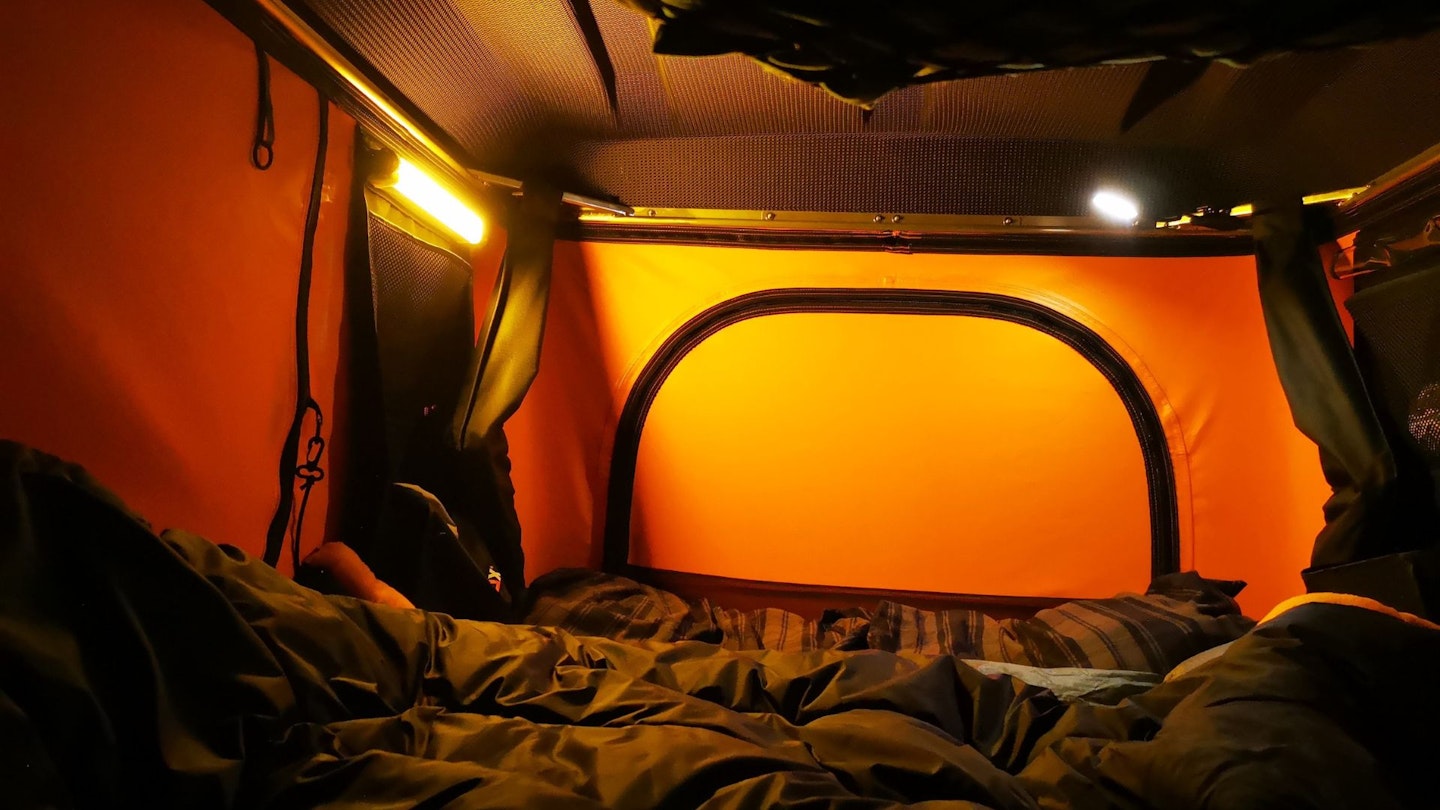
Some high-end models do, but most do not.
About the author

Chris Williams is LFTO's Senior Writer. He has worked both as a journalist in New Zealand and for outdoor gear brands and has extensive knowledge and experience using and testing outdoor and camping products. Chris has been working on Live For The Outdoors since 2021.



